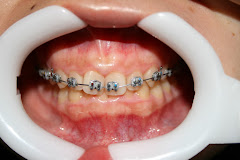What is Phase 1 Orthodontic Treatment?

Phase I Orthodontic Treatment: Early Intervention for a Healthier Smile with Dr. Brian Leung If you're a parent, you might be wondering whether your child could benefit from Phase I orthodontic treatment . Also known as early interceptive treatment , this type of care is designed for younger patients to correct dental issues before they become more serious. Dr. Brian Leung , a top orthodontist in Old Bridge, NJ , is here to guide you through this important stage of your child's dental development. In this post, we'll discuss what Phase I orthodontic treatment is, why it's important, and how it can help set your child up for a lifetime of healthy, beautiful smiles. What Is Phase I Orthodontic Treatment? Phase I orthodontic treatment is typically performed on children who still have a mix of primary (baby) teeth and permanent teeth . The goal of this treatment is to correct or prevent developing dental issues that could worsen as your child’s permanent teeth come in. Th...




